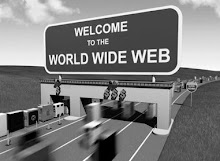In our society today, tools such as instant messenger and microblogging are rooted into children’s lifestyle. In their spare time they will constantly be on social networking sites, microblogging sites such as twitter and chatting away to their friends on instant messengers such as facebook chat or whatsapp (on the iphone).
This is the world that younger students are being brought up in so why not use theses tools that they know how to use so well, and embed it into their education.
I have been looking at using twitter a learning tool. I must admit, when I first heard about Twitter I thought it was just another social networking tool where people could just update you on what they were doing at the specific moment and thought it was actually pretty boring. I never really saw the point in it and when the view was put across that it could be used as tool in education, I really didn’t understand how. But from our lectures and after reading a lot more about it, I now realise that Twitter has the potential to be a great educational tool. It is not just an instant messaging site or social network site, but instead it can be used to have conversation on a larger scale and you are able to share your ideas and knowledge with not just a few contacts but to a huge network of people.
After looking through the web, I actually found a really good website/blog, which has a number of ideas on ways to use twitter in the classroom and the title of it is:
"100 ways to Teach with Twitter":
Instead of me listing all the uses of twitter in education, I thought you may want to have a look at this useful link. This blogger has compiled a number of articles containing examples and suggestions for using Twitter in instructional applications.
"Twitter is a place to share a resource, a link to a new blog post, or an insight, and even a place to have a little fun. It’s a place that could be about learning”.
-- David Jakes.
